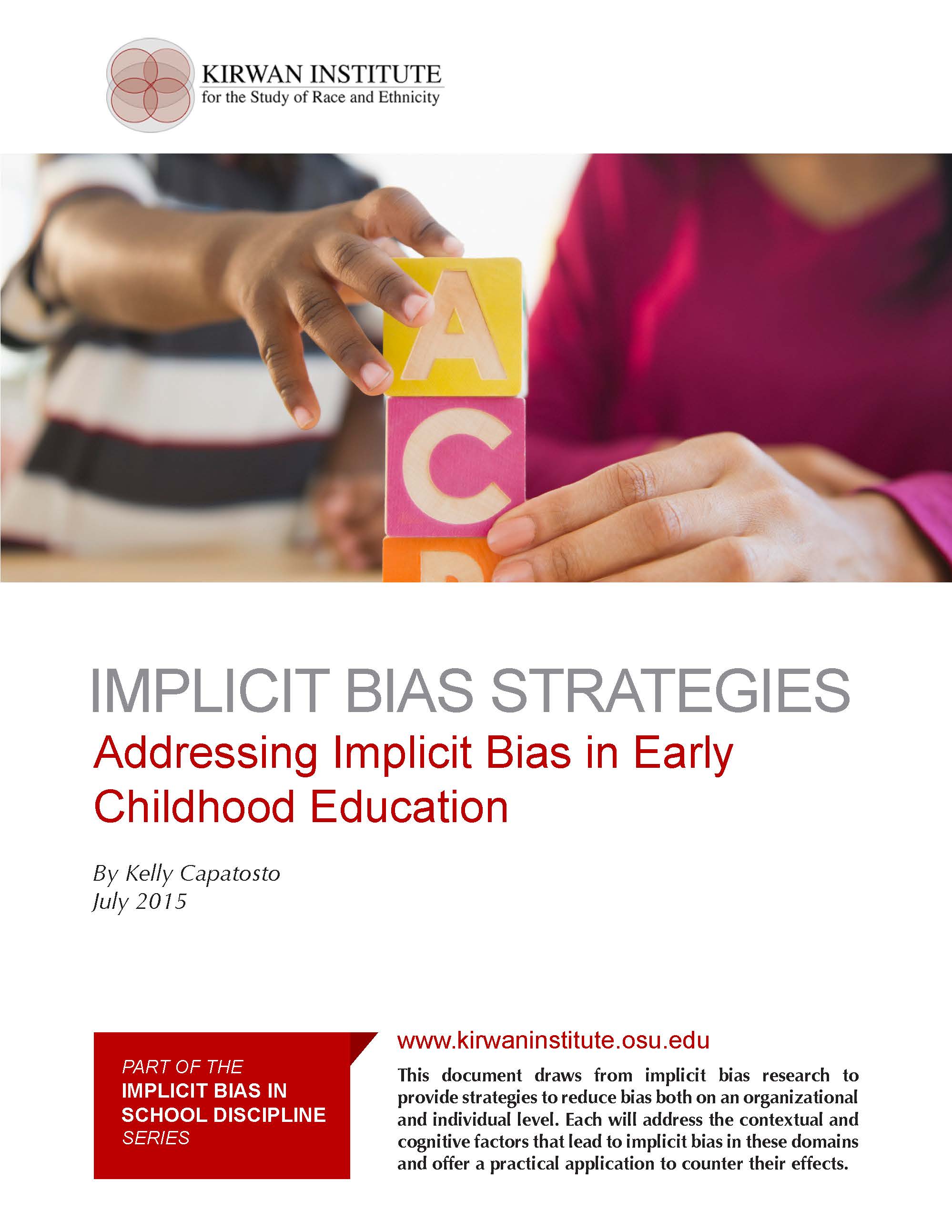
Few would deny the importance of education in shaping life’s opportunities. As such, early interventions have often been heralded as a critical leverage point for ensuring that students’ educational opportunities are
maximized. The value of education for youth goes far beyond content knowledge as it fosters artistic, emotional, and relational growth. Nevertheless, a student’s brilliance, creativity, and hard work fail to serve a function if the opportunity to utilize those gifts is absent. Thus, we must strive to break any barriers to success as early as possible in order for youth to reach their full potential, especially as we know that early education experiences—whether positive or negative–can impact a student’s educational
and social trajectory (in general, see Engle & Black, 2008; Hamre & Pianta, 2001; Kern & Friedman, 2008; Peisner-Feinberg et al., 2001).
The role of educators and school personnel is instrumental for ensuring a successful educational experience for youth. This responsibility requires flexibility, compassion, and the ability to navigate the ever-changing tides of the educational system. Indeed, many educators sacrifice
precious time and invest additional effort, both on and off the clock, to ensure the best outcomes for their students.